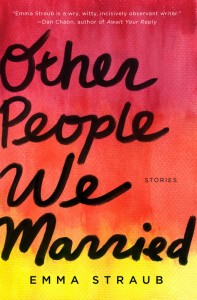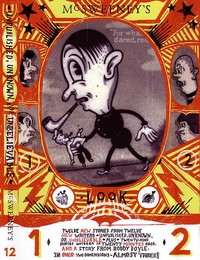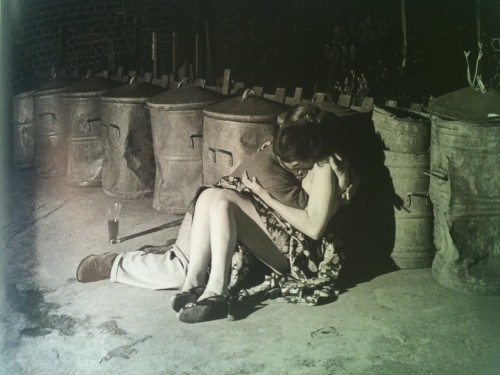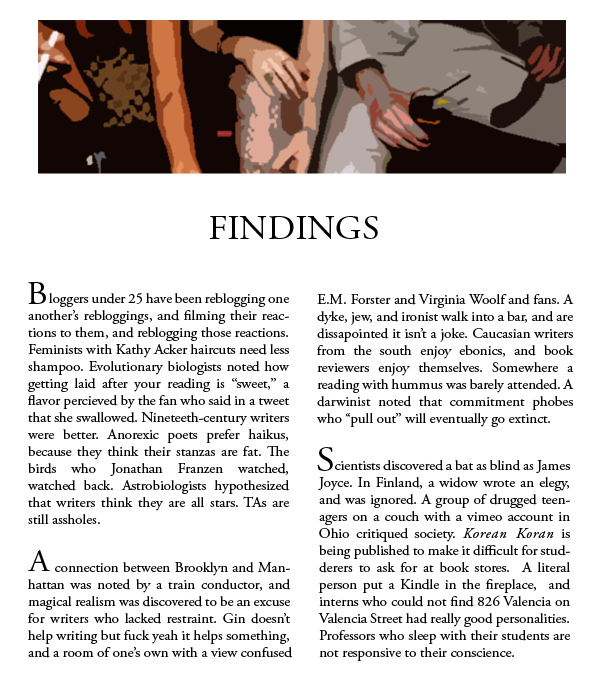Other People We Married by Emma Straub
 I loved Other People We Married by Emma Straub. I’ll put that out there immediately. Don’t worry, I will get more nuanced than that but first I need to talk about French flaps on books. There Is No Year has French flaps too and that thrilled me. I love paperback books with those flaps on them. It feels sophisticated. The French flap is, by far, the best book innovation I’ve seen in a long time. I want to put French flaps on everything. Other People We Married has French flaps so I was very optimistic when I began reading. I just had to get that off my chest.
I loved Other People We Married by Emma Straub. I’ll put that out there immediately. Don’t worry, I will get more nuanced than that but first I need to talk about French flaps on books. There Is No Year has French flaps too and that thrilled me. I love paperback books with those flaps on them. It feels sophisticated. The French flap is, by far, the best book innovation I’ve seen in a long time. I want to put French flaps on everything. Other People We Married has French flaps so I was very optimistic when I began reading. I just had to get that off my chest.
There are a few things that really elevate Other People We Married above so many of the short story collections I’ve read this year—the visible level of craft in the writing, the intimate attention to detail, and the cleanness of the prose.
When we talk about clean writing and minimilast writing, our natural instinct is to discuss Raymond Carver who is so widely known for his stripped down writing, telling big stories with as little artifice as possible. The stories in Other People We Married did not necessarily evoke Carver for me but there was a really clean, minimal quality to the writing I really enjoyed. The writing in this collection demonstrated a new kind of minimalism, one where the stories are stripped of artifice but still retain some of the detail and texture that can really fill a story and that I sometimes miss when I’m reading the work of someone like Carver.
It is rare that I will love every story in a collection but I did love each of the twelve stories in this collection both individually and also as a whole collection with a distinctive shape. Each story was intimate and engaging and really, really clean. I never found a word or idea out of place, nothing that pulled me from the stories or the people and places borne of Straub’s imagination.
May 9th, 2011 / 4:32 pm
Semester Over: Go Right Ahead
Jane, Jane, tall as a crane!
Did I hear the word whiskey?
A great many people now reading and writing would be better employed keeping rabbits
We will have beer for lunch
The final crumbling of the rusty triangle
Dead, the leaves that like asses’s ears hung on the trees
Huge glasses of sloe gin
Yellow, meaningless, and shrill
I am an unpopular electric eel in a pool of catfish
No liking but all lust
Old people do have falls
Playing catch up with the stacks
All around my desk, stacks of texts pile up until Beatrice (our mackerel tabby) knocks them down. Then I try to re-stack them. One stack should be material for review, one stack for fun, one stack for research projects, etc. This always never works. Stacks blend with other stacks to form new stacks. With my wife’s desk on the opposite wall in our study, her stacks always threaten to encroach on my stacks, our individual stacks blending to make ever more new mutant stacks. Our bookshelves are brimmed with books: no room remains anywhere there. I’d take a picture to show you the absurdity of it, but probably many of you have similarly absurd looking book situations.
At any rate, one of the stacks is stuff I’ve intended to write about here on htmlgiant, but for one reason or another, one prior commitment or another, I got sidetracked and failed to write about it like I should have or would have or wanted to, etc. Some of it I’ve read cover to cover, some of it I’ve taught to undergraduates, some of it I’ve still only flipped through. I’m sure some of the texts in the stack have moved to other stacks, so I’m probably gonna omit stuff, but at least here are a few of the things in that stack…
“Cold France” by Wythe Marschall
 In 2003, McSweeney’s published issue 12, which consisted of 12 unpublished writers and some other stuff. A friend of mine made me buy this issue, and I remember talking with him about one story in particular. It’s the only story I remember from the issue: “Cold France” by Wythe Marschall. I read it on the floor of my bedroom at my parent’s house while home from college during some break or another. Since then, I have occasionally thought of “Cold France” and idly wondered whatever happened to Wythe Marschall. His bio in the contributors’ notes section said that he was nineteen at the time, and so he forever remains nineteen in my head, despite what Google just told me.
In 2003, McSweeney’s published issue 12, which consisted of 12 unpublished writers and some other stuff. A friend of mine made me buy this issue, and I remember talking with him about one story in particular. It’s the only story I remember from the issue: “Cold France” by Wythe Marschall. I read it on the floor of my bedroom at my parent’s house while home from college during some break or another. Since then, I have occasionally thought of “Cold France” and idly wondered whatever happened to Wythe Marschall. His bio in the contributors’ notes section said that he was nineteen at the time, and so he forever remains nineteen in my head, despite what Google just told me.
“Cold France” consists of seventeen short sections, each of which describes a different “permutation” of France. There is “Dog France,” “Whale France,” “Tent France,” “Sponge France,” and “Fat France.” I read that in “Merry France” one Frenchman “simply said ‘fox’ until all of Limoges had died from heart seizures” from laughing so hard. In “Dark France” a man questions his existence: “What is the meaning of darkness? thinks Jean. He wants to move to another country, but he cannot see what ticket to buy at the station. A badger walks into him in the woods when he is on vacation.” In “Slow France” I read “Because each follicle has so long to think over each new molecule of French hair, each French strand is shinier, stronger, and more fit to entertain at parties than other, foreign hairs. So when you get it in the mail, please remember: Whatever you do, don’t cut your French hair.”
Suggested Pairings: Etgar Keret and Kuhnhenn Blueberry Panty Dropper
The Girl on the Fridge by Etgar Karet has a blurb from Salman Rushdie on the cover which is major street cred with all of Rushdie’s hot ex-wives, leggy current girlfriends, not to mention the Rushdie sneer and the notorious fatwa, especially provocative in context, blurb on Israeli author’s book (this book translated from the Hebrew), book often about Arab/Israeli conflict, book often situations of paranoia, hidings, possible violence, also the cover a medical green/blue, but let’s return to contemporary Arab/Israeli situation possibly presented here as dreadfully fantastic, possibly absurdly horrific, possibly the hyperbole and horror of the prose/situation, warped looking glass, warped words, oh gods, just say it, OK possibly all Magical Realism, all creative counter-distortion, not here as detached, mystical, balloonish, Big Pictures KABAM!!, or/as magical at all/at all but or/as considered here by literary skill as true.
Kuhnhenn Blueberry Panty Dropper is one fruity beer. Those kind folks at Kuhnhenn Brewing Company used actual Michigan blueberries, I shit you not. This reminds me of a bar in Rhode Island where you can order beer with blueberries floating in the glass. Don’t do that. Only douches want fruit floating in their beer. So you want to start with the color? Fine, we’ll start with the color. Pours out a light pinkish purplish periwinkle saffron, with adjacent radiation regions of a dark European honey hue, flashes of chestnut and burgundy, coffee-like, Big Red in a glass. Oh, I’m fumbling a bit here. Not sure how to exactly pin down this hue. Have you ever seen the type of rust/blood stains a person will obtain on the fleshy parts of their palms while hand-drilling a water well (or even augering, sludging, or jetting)? Or like maybe the clouds of delicate almond petals you will see on windy days across the Island of Cyprus? Well, like that.
Twitter MFA
In which we do a close-reading of a Tweeter’s Tweet draft and assess its tone, theme, synecdoche and narrative arc, among other things. Today’s Tweet draft was written by Daniel Bailey. Join us next Friday for a discussion of a Tweet draft written by Colson Whitehead.
The Tweet draft:
i will gain street cred by shit-talking all streets in my hood on yelp.com. current mood: ti holding a baby. future mood: unstoppable
In reading Daniel Bailey’s Tweets, the reader imagines that Bailey is binge-Tweeting drunk from his bathtub. If he were a reportage-style Tweeter, or (god forbid) a promo-Tweeter, these excessive Tweetouts wouldn’t work. But Bailey’s laissez-Tweet style is like messy hair that looks really fucking good. So we’ve often wondered how ‘hard’ is Bailey ‘trying’? Is he a pre-drafter? An off-the-cuffer? A hybrid? Regardless, the Tweet draft that Bailey sent us, to use academic jargon, is ‘da bomb.’
Kenneth Goldsmith and Michelle Obama to lead a poetry workshop for children

“An Evening of Poetry”
Event Continues Arts Education Series at the White House on May 11th
The President and Mrs. Obama will host a celebration of American poetry and prose by welcoming accomplished poets, musicians and artists as well as students from across the country to the White House next week. Participants include Elizabeth Alexander, Billy Collins, Common, Rita Dove, Kenneth Goldsmith, Alison Knowles, Aimee Mann and Jill Scott who will read, sing, and showcase the impact of poetry on American culture. The President will make opening remarks at this event held in the East Room, which will be pooled press and streamed live on www.whitehouse.gov starting at 7:00 p.m. ET.
Find out more over at Jacket 2. (Thanks to Kent Johnson for the tip!)
Bill Knott Week: Last Postings
Best Deal on the Internet:
James Wright on Bill Knott, from Wright’s collected letters:
September 6, 1975
D. Groth,
You kind letter made me happy. Poetry is a strange adventure: at crucial times it is––it has to be a search undertaken in absolute solitude, so we often find ourselves lost in loneliness––which is quite a different thing from solitude. America is so vast a country, and people who value the life of the spirit, and try their best to live such a life, certainly need times and places of uncluttered solitude all right. But after the journey into solitude––where so many funny and weird and sometimes startlingly beautiful things can happen, whether in language or––even more strangely––in the silences between words and even within words––we come into crowds of people, and chances are they are desperately lonely. Sometimes it takes us years––years, years!–to convey to another lonely person just what it was we might have been blessed and lucky enough to discover in our solitude.
In the meantime, though, the loneliness of the spirit can be real despair. A few years ago, when I lived in St. Paul, Minn., I received unexpectedly a short note from a young poet* who was bitterly poverty striken in Chicago. READ MORE >




